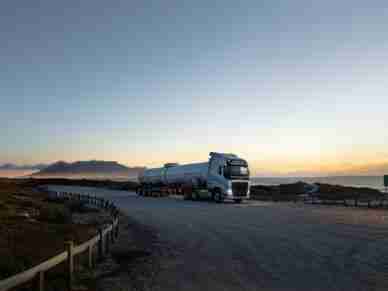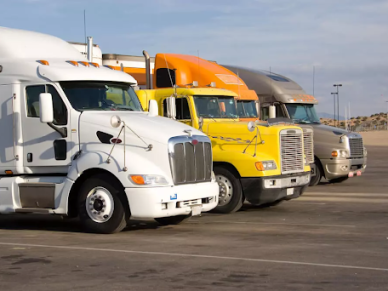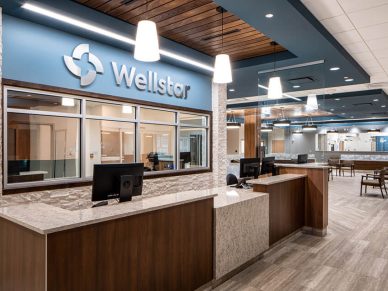View This Article in BOSS Magazine
It’s possible to strike a balance between sustainability and profitability. Wheeler Material Handling shows us how
Yes, Wheeler Material Handling is a business. As such, it strives to make money. But if that’s all you ever learn about the company, you can’t rightly claim to know the first thing about Wheeler.
As a net positive company, Wheeler focuses on its carbon footprint and environmental impact, finding ways to improve those regardless of their immediate impact on profit and revenue. To remain in business, of course, Wheeler must also find ways to balance those goals. The solutions Wheeler has discovered have it on the leading edge of the material handling industry. They’re helping to create a better ecosystem while maintaining longstanding relationships with the Fortune 1000 companies it’s worked with for two-plus decades.
“It can be done,” Wheeler president and COO Scott Moe told BOSS, “and we’re doing it today.”
“We're constantly striving to find new ways to be a ‘net positive’ company. We believe that industry can find a balance between profitability and environmental sustainability,” he said. “In part, we accomplish our goals through offering renewable fleet solutions and providing the entire ecosystem to help our customers exceed their ESG goals. It's a true win-win for business and society.”
It's the ingenuity of those solutions that sets Wheeler apart.
Net Positive
Wheeler can sell you warehouse equipment — Yale Lift Trucks and Nuvera hydrogen fuel cells are particular specialties — but, again, that only scratches the surface of what the company does. Wheeler understands its customers’ goals, working more like an arm of their business than just a vendor. That’s not lip service. Wheeler does extensive product and application training with its more than 250 material handling specialists across 11 branches in the Southeast.
“We believe what separates us from other distributors is our overall solutions approach to the marketplace,” VP of sales and marketing Dan Gibbons said. “Our material handling specialists utilize their extensive product and application training to better understand customer’s material handling objectives. We focus on improving our customer’s material handling productivity, lowering overall costs, and offering continuous improvement ideas.”
One prominent customer, for example, has a million-square-foot plant whose Yale forklift fleet runs on Nuvera hydrogen fuel cells. The only emissions it produces is water.
“Here we’re working with end user customers to help solve environmental problems,” Moe said. “Somebody might say, ‘Well, why is that your business?’ That’s what a net positive company is. I believe that all of us, if we’re a net positive society and concerned with our entire supply chain, can do their part. We’re asking who do we buy from, who do we sell to, and how can we improve that? If we’re all doing our part, there’s just no doubt this is a better world.”
The way Wheeler sees it, doing your part in the fight against climate change might cost margins upfront, but if you find the balance between environmental responsibility and profit, you solve the great problem of our time. At its core, Wheeler solves problems.
Digital Solutions
When COVID changed the nature of business, pushing more functions online rather than face to face, the material handling industry struggled to provide touchless customer solutions. SmartFleet fixed that problem for customers and again put Wheeler at the forefront of finding the solutions that conditions demand.
“SmartFleet is our new digital fleet management tool that’s focused on improving customer service and ease of doing business. It’s available through mobile phones or desktops and gives our customers 24/7 real-time access to their material handling fleet," Alex Phifer, VP of aftermarket operations, said. "It allows them to request parts, service, and rental requests — plus detailed information on their associated operating costs,” Alex Phifer, VP of aftermarket operations, said.
Limiting in-person interaction during a pandemic is one thing, but SmartFleet provides more. It gives customers a detailed understanding of their associated operating costs for equipment. They can readily calculate their annual spending down to each individual piece of equipment.
By now, everyone expects that 24/7 real-time access to be the norm. Wheeler was ahead of the game.
“A lot of companies think they’re easy to do business with,” Moe said. “Of course, we’re always striving to improve, but you really have to work from the customer backwards. What does the customer want? You and I want to be able to pop on Amazon and quickly order something, right? Why would material handling be that much different?”
Launching HydroFleet
Five years ago, as part of its net positive initiatives, Wheeler founded OneH2 Southeast, a hydrogen refueling company using Nuvera fuel cells and Yale forklifts. That effort has proved so successful, Wheeler is expanding and accelerating it.
“We’re excited about transitioning OneH2 Southeast, our regional hydrogen fueling company, into HydroFleet, a national specialized hydrogen leasing company,” HydroFleet COO Michael Vos said. “HydroFleet is scaling our hydrogen network nationally to meet the growing demand for hydrogen fuel and expanding our offering from hydrogen-powered forklifts to include class 8 heavy trucks, terminal tractors, and more.”
HydroFleet will provide vehicles for entire fleets. It’s in the startup phase now, but there are 10-year plans to expand throughout all major markets in North America. The idea is to provide all-in monthly rates for customers for their entire hydrogen ecosystem, covering the truck or lift itself, the infrastructure and maintenance to keep it running, and hydrogen itself to refuel.
Customers get zero emissions at the tailpipe through one solutions provider with one monthly invoice. Delivering high pressure hydrogen gas is a service no company has yet come up with, but thanks to the success of OneH2 Southeast, Wheeler is excited about providing it.
“It’s very rewarding when customers remark how great hydrogen fuel cell technology is and how we helped them exceed their environmental goals as a company. Simply put, our model removed the barriers and pain points associated with deploying new technology — while providing the entire hydrogen ecosystem for one monthly rate,” HydroFleet VP of sales and marketing J.R. Jenkins said.
That’s what Wheeler means when it talks about being easy to do business with. End users might want to improve their environmental focus, but they might not know where to start, or find it too difficult to make wholesale changes when it means sourcing equipment from several different providers and having a lot of details to sweat. Once they know all they have to do is call up HydroFleet, they’re much more likely to make the leap.
Leading the Way
While battery-powered EVs are an excellent first step toward zero-emissions goals, they solve only part of the problem. There are no emissions at the tailpipe, but to charge up, those batteries need to plug into a grid that more likely than not runs mostly on fossil fuels. Hydrogen fuel cells are the next step that will be the ultimate solution. There are zero emissions at the tailpipe and they’re off-grid. That’s the advantage HydroFleet will bring: truly zero emissions fleets that are easy to acquire, equip, and maintain. It’s that kind of forward thinking that will keep Wheeler as a leader in the space.
Moe knows Wheeler won’t be alone in finding the balance between environmental stewardship and profitably. In fact, he’s counting on it. He does think Wheeler can provide a blueprint for other companies to follow, and in its role as solutions provider he can directly aid others.
“We’re not the end-all, be-all here,” he said, “but I think this is a perfect example of how one company has found a way into the future that strikes that balance.”
Business leaders shouldn’t and can’t sit back and wait for government or somebody else to solve the problem. If it takes Wheeler showing the way to influence others, Moe is more than happy to do so.
“If we all do our part, we’re going to come up with these collective solutions, 100%.”
Wheeler Material Handling is convinced we’ll rise to the challenges of climate change. They might just make a believer out of you, too.
Founded in 1988, Wheeler Material Handling is a privately owned full line industrial equipment and allied products distributor.
Based in Charlotte, NC, we have eleven branches throughout the southeast serving North Carolina, South Carolina, Virginia, Tennessee, Georgia, and Alabama.
WMH offers new and used sales, leasing, parts, service, rental, and fleet management.
Our main product lines are: - Yale / lift trucks - Bendi/Drexel / lift trucks - Combilift / long load handling lift trucks - Cushman / personnel carriers - Haulotte / aerial lifts - Ridg-u-Rak / racking - Enersys, Exide, Hawker / batteries/chargers - Nuvera hydrogen fuel cells - OneH2 hydrogen refueling systems - Yale Vision lift truck telemetry.
Our focus has always been to provide top quality products and exceptional customer service.
We specialize in unique material handling solutions to help customers increase their productivity, lower their carbon footprint, and reduce their overall material handling costs. Wheeler Material Handling - Industry Leading Solutions
Corporate Office
Wheeler Material Handling
1515 Shopton Road, Ste 102
Charlotte, NC 28216
Telephone 800-844-1454
Email info@wheelermh.com
Website https://www.wheelermaterialhandling.com/
Facebook https://www.facebook.com/wheelermaterial/
LinkedIn https://www.linkedin.com/company/yale-carolinas-inc./





















